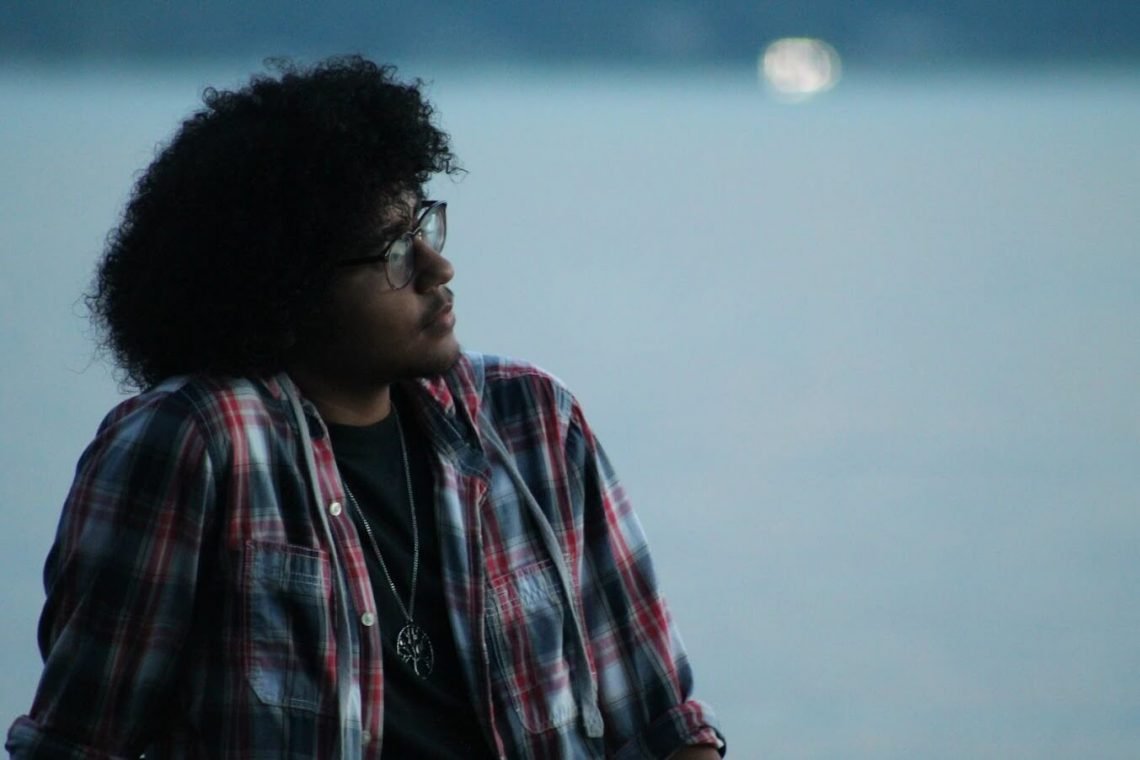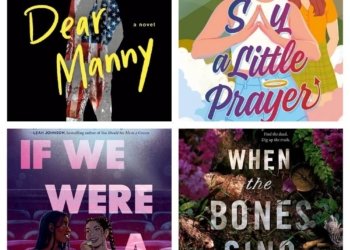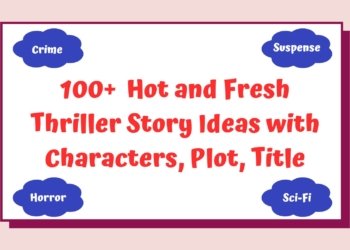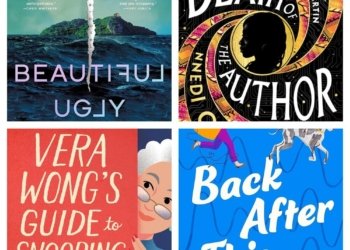No products in the cart.
A Conversation with Paul Williams, a Fantasy Author
Paul Williams, author of The Shadow of Hades, is a 22 year old independent author of fantasy novels.
1.1k
SHARES32.5k
VIEWSPaul Williams is a 22 year old independent author of fantasy novels. His passion for reading developed when he discovered fantasy series such as Percy Jackson, Deltora Quest, and The Spiderwick Chronicles among others. He has always desired to create art in many forms, and has dedicated his life to pursuing a career sharing the worlds, and in some cases, universes he creates in his head.
The themes of his work are often centered around religious trauma, independence, loneliness, perseverance, and friendship. These themes are recurring in his own life as well, and as such he has many insights into the nature of them that he feels a burning need to share, in hopes it can enhance the lives of the right readers.
Let’s get started with a quick rapid fire.

Q1. If you could be transformed into one mythological creature, which one would you choose?
My heart wants to say Gorgon, but my brain is telling me something that flies. My twitter handle is Field Pixie, after all.
Q2. What time do you usually go to bed at night?
Usually between 9:00pm, and 12:00am.
Q3. What are the least-likely three words someone would use to describe you?
Organized, superficial, and extroverted.
Q4. Where did you go on your last vacation?
Back to my home state of South Carolina to visit some friends.
Q5. Would you rather find your dream job or win the lottery? You can’t do both.
Dream job, it would be more fulfilling long-term.
Q6. What is one thing you regret spending money on?
Pants that didn’t fit.
Q7. What object do you misplace or lose the most?
My headphones, because I take them everywhere so they’re more likely to disappear.
Q8. If you were a spy, what would be your codename?
Secret Rider (Based on my initials from a template lol).
Q9. What secret about the universe would you most want to learn?
If there are truly other dimensions out there with life similar to ours. “These were likely Ansuz converts, or had once been believers in him, but were torn asunder by Osiran’s attempts at gutting the movement. And from the looks, he had succeeded. It was entrails all the way down.”Paul Williams, Omen: The Stained Sea.
Q10. What never fails to make you laugh?
Scrolling through TikTok is guaranteed to get at least a grin out of me most days.
Q11. What was one “before” and “after” in your life?
Before I discovered Youtube, and after. (To be fair I was 4, but still.)
Q12. What do you think people misunderstand about you?
I can come off as a bit shy, so it’s hard for people to get to know me.
It’s time for a more detailed conversation, Paul.
You’ve answered our rapid fire brilliantly, Paul. Now, it’s time for our readers to know more about the person behind the book.
Q. Tell us about your journey.
I’ve wanted to be a writer since I was eight years old. Back when I was in elementary school, I made countless stapled booklets with drawings, and I was fascinated by stories, even though I was supposedly behind my grade level in reading, the tutors I had caught me up very quickly.
At thirteen I committed my life to publishing a novel, and I haven’t looked back since. I finally accomplished my goal at 17, in my final year of high school. But it didn’t stop there, and now I’m here working hard to pave a way for myself in the literary world through fantasy fiction that doesn’t conform to the formulas and tropes that are currently leading the popular publishing world. My most recent work is a planned trilogy called Omen. Book one, titled: The Stained Sea is releasing in late March.
Q. So, what books have you read more than once in your life?
I don’t tend to read books more than once, but I will revisit certain scenes if I’m in the mood. I often revisit ones from when I was in school, like Percy Jackson, The Hunger Games, and my favorite series, The Search for Wondla by Tony Diterlizzi.
Q. Interesting. Who has been the biggest supporter of your writing?
I find the best support comes from my writer friends on Instagram, who understand the struggles, and I can share experiences with.
Q. Do you hide any secrets in your books that only a few people will find?
All the time, little references that are more or less just for me, and some that are baked into the plot itself. They get pretty weird, my most recent work was inspired by a very unlikely source, a comedy Youtube channel, though I won’t reveal which. “She leaped and spun onstage, the music flowing through her, pulling her along in exact angles like a cosmic marionette. Her feet were poised and pointed like wands she waved at every jump. Every sore morning, and broken bone since she first learned to dance had hardened her body for that moment, the weight of her past forced her along. She hadn’t gained her wings at that point, but as she danced, she swore she could fly.”Paul Williams, The Shadow of Hades.
Q. Now comes the most anticipated question that every author must answer. How do you process and deal with negative book reviews?
It depends on the kind of feedback. If there’s a realistic critique, I’ll take what is useful from it, but if there’s not much for me to gain, it’s best to ignore it. I have to put this into practice now that I’ve got a new release coming up. That’s the hard part.
Q. What comes first for you — the plot or the characters — and why?
I think the two are tied together for me. You can’t conceptualize one without the other. With my most recent work, I guess the idea for characters came first, but their individual stories came close behind. Before I could name them, I knew them by their role in the plot.
I’m not someone who creates OC’s (‘Original Character’s’) . I find they’re more useful for drawing and art. When I write, the characters are married to the story, they serve each other.
Q. How do you develop your plot and characters?
A lot of notes, and notebooks lol. Because there are multiple MC’s, I need to track each of their story arcs separately, and then find a way to tie them together. It’s connecting a lot of scattered points until it’s cohesive, and then I’ll polish it up.
Q. You got 100 points. You need to divide them on the basis of how relevant and important they are to you as a reader and a writer for your book or someone else’s as a reader. Your options are Plot/Story, Book Cover, Marketing, and, Reviews.
Based on overall success of a book, here’s what I’ll say.
Plot/Story: 20 , Dialogue: 10 , Cover: 20 , Marketing: 40 , Reviews: 20
If sales is what we’re measuring, it all comes down to the surface level. Marketing is key. But it doesn’t make a good story.

Q. So, now, about your book. Talk to us about it. No major spoilers.
This is always a hard one for authors, and even more so for me I think. A lot of reviewers even have a difficult time putting my stories into a box. But, here goes:
Omen: The Stained Sea is the first novel in a planned trilogy centering around themes of religion, power, knowledge, and agency. There are three main characters who exemplify this. One is a man fighting for an oppressed religious sect called ‘the singers of Oros.’ Another is a child sold into slavery by his father in exchange for a crime. And the last is a woman from another dimension who finds herself entangled in power based schemes.
As for specifics on the plot, well, you’ll have to read the book to know.
Q. What part of the book did you enjoy the most while writing?
I have to say the ending. The part where it all comes together has been an end goal since the conception of Omen: The Stained Sea, and I didn’t have to think too hard about it at all. I just put on some climatic music, and let the story unravel from my brain and onto the page.
Q. What is your kryptonite as a writer?
Marketing, for sure. I think that’s kryptonite for most writers. I’m not very comfortable putting myself out there, especially not bragging about my own work, it’s easier for me to be overly critical.
Q. Would you and your main character get along in real life?
Out of my three MC’s, I’d get along best with Cai I think. Mele is very quick witted, but a bit too much to handle at times, and Runo is filled with ulterior motives.
Q. What risks have you taken with your writing that have paid off?
Continuing to write is the biggest risk a writer can take. No unknown artist can be sure of their future, and the amount of dedication and courage it takes to proceed with this field is immeasurable. The reward is with readers who find value in my work.
Q. Let’s talk about the process of writing. Do you do research while writing a book to add more authenticity? What kind of research?
I tried to do most of my research before starting my latest series, Omen. But as someone who loves to learn about history and spiritual practices, I ended up learning more as I was writing. For example I got a library book on the daily life of a Roman, as my setting is Mediterranean inspired. I was able to go back through the manuscript and adjust some details to add more texture to the world.
Q. What was your hardest scene to write?
This is a tough question. I don’t recall any scenes giving me a really hard time, and if they did they probably weren’t meant to be there in the first place. But it’s difficult to balance so many story threads at once. Although it’s a challenge, it’s something I enjoy exploring in my books lately.
Q. Well, this has been great. Now, before we wrap this up, do you have any suggestions to help someone become a better writer? If so, what are they?
I would say to research the techniques of film, art, video games and other mediums. Not only for generally useful writing info, but also for inspiration. There’s times I frame a scene I’m typing as though it’s in a comic, or shot like a film. It keeps the process fresh, and gives a lot of unexpected insight.
UPDATE:- His book, Omen: The Stained Sea will be available on Amazon starting March 31, 2023.
Related Posts
8 Most Anticipated Young Adult Books of Spring 2025
As the days grow longer and the air warms with the promise of spring, the literary world awakens with a...
100+ Bestselling Thriller Novel Story Ideas for 2025
Welcome, aspiring authors, to the thrilling universe of storytelling where your next bestseller is just a spark of inspiration away!...
10 Most Anticipated Books of 2025
As the chill of winter melts away and the promise of spring begins to bloom, March 2025 brings with it...
10 Must Read Romance Novels of 2025
Is it possible for a bookworm to browse the bookshop or browse social media without being overwhelmed by romance fantasy...
About Us

Trenzle
Where Trends are made and discovered
Trenzle is your official source of discovering the latest people, work, and ideas that deserve to trend. Discover Authors and their books, Creators and their work, People and their opinions, and Stories from around the globe.
Learn more
Latest Posts
8 Most Anticipated Young Adult Books of Spring 2025
March 12, 2025
100+ Bestselling Thriller Novel Story Ideas for 2025
March 7, 2025
Categories
© 2023 Trenzle - Online Author News & Magazine










